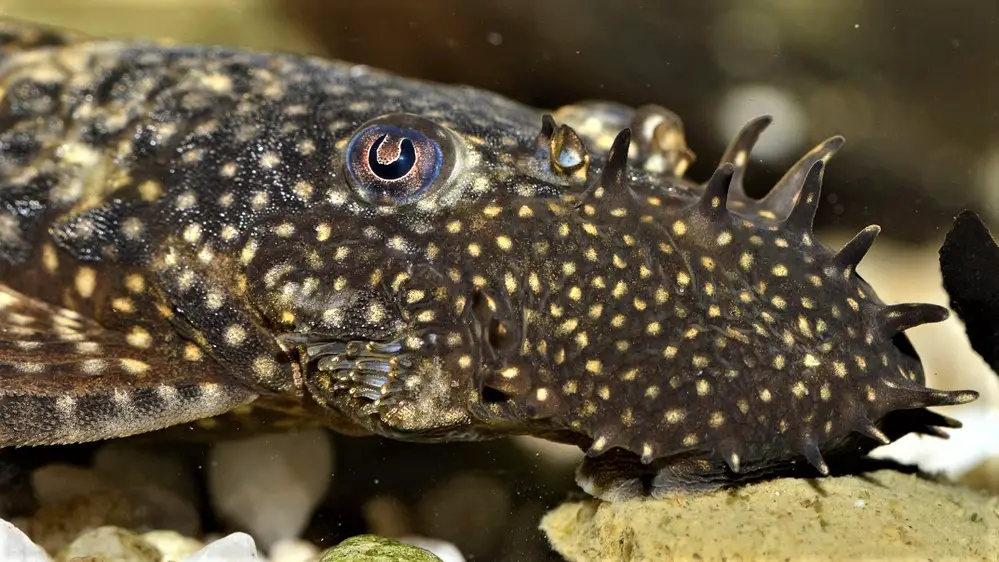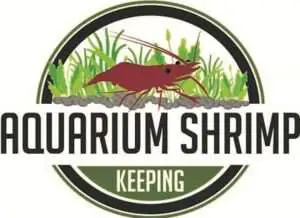Yes, shrimp do eat fish poop. As versatile scavengers, they consume a wide range of materials within their environment, including fish poop.
As someone who has bred thousands of shrimp over the years, I’ve had plenty of opportunities to observe their behaviors and understand their dietary habits. One question that comes up regularly is, do shrimp eat fish poop? The answer, quite simply, is yes. Drawing on my personal experiences and observations, let’s dive into this topic and explore the reasons behind this behavior and its implications for your aquarium ecosystem.
The Scavenger Nature of Shrimp
Shrimp are renowned for their scavenger nature, a trait that allows them to thrive in various environments. This characteristic is primarily displayed in their feeding habits. Unlike some aquatic creatures that might be picky eaters, shrimp are highly adaptable and consume a wide range of materials found within their environment.
The scavenger nature of shrimp is largely due to their anatomical features. Equipped with small, sensitive legs and antennae, shrimp are highly skilled at locating food. They use these tools to meticulously scour the substrate, plants, and any other surfaces in the tank for food. This careful exploration often leads them to discover a variety of edible items, such as algae, uneaten fish food , decaying plant matter, and fish poop.
, decaying plant matter, and fish poop.
Moreover, shrimp are not only scavengers by nature but also by necessity. Living at the bottom of the food chain in their natural habitats, shrimp have evolved to be opportunistic feeders. Their survival often depends on their ability to find and consume any available food sources, which is why they have developed such a broad diet.
This scavenger behavior is beneficial for both the shrimp and the aquatic environment they inhabit. For the shrimp, it ensures they have a steady supply of food. For the aquarium, it means that waste materials and uneaten food are continuously being cleaned up, thereby contributing to a cleaner and healthier tank.
Despite their scavenger nature, it’s important to remember that shrimp still require a balanced diet for optimal health. While they can and do eat fish poop, this should not be their primary food source. A varied diet that includes specially formulated shrimp food, along with natural tank resources, will ensure your shrimp get all the nutrients they need to thrive.

Why Do Shrimp Eat Fish Poop?
Shrimp eating fish poop might seem strange to us, but there’s a logical explanation based on their natural instincts and survival strategies. The reasons why shrimp consume fish poop can be attributed to three main factors: nutrient extraction, environmental cleaning, and their inherent scavenging behavior.
- Nutrient Extraction: Fish poop, though not appealing to many, is a source of nutrients. It’s important to remember that fish do not fully digest their food, meaning their waste still contains some undigested matter and nutrients. Shrimp, being the opportunistic feeders they are, can extract these nutrients as part of their diet. This is particularly crucial in environments where food might be scarce, and every potential food source is a boon for survival.
- Environmental Cleaning: Shrimp are nature’s little cleaners. In the wild and in aquariums, they contribute to the breakdown and removal of organic matter. By eating fish poop, they help keep the environment clean. This not only benefits the overall health of the aquarium but also reduces the buildup of harmful substances, such as ammonia and nitrites, that can result from decomposing waste.
- Scavenging Behavior: Shrimp are scavengers by nature. They are wired to consume whatever edible materials they can find in their environment, and this includes fish poop. While fish poop is not their primary food source, it becomes part of their diet due to their non-discriminatory feeding habits.
The Implication for Aquarium Health
The fact that shrimp eat fish poop has substantial implications for the health of an aquarium ecosystem. Here’s how:
- Waste Management: In an aquarium setting, shrimp play a crucial role in managing waste. They consume not just the waste produced by fish, but also other organic matter such as leftover food and decaying plant matter. By eating fish poop, shrimp assist in reducing the amount of waste that settles on the aquarium floor, thereby helping to maintain a cleaner environment.
- Nitrogen Cycle Contribution: Fish waste, which is rich in ammonia, is a crucial part of the aquarium’s nitrogen cycle. When shrimp consume fish poop, they contribute to this cycle by breaking down the waste more efficiently. The waste produced by the shrimp after consuming the fish poop is in a form that is more readily broken down by beneficial bacteria in the aquarium, thereby promoting a healthy and balanced nitrogen cycle.
- Reduced Need for Cleaning: With shrimp in your aquarium actively consuming fish waste, the need for frequent cleaning and water changes can be reduced. This doesn’t mean you can completely forego these activities, but with shrimp helping out, your workload can be lessened.
- Indicator of Aquarium Health: Finally, observing the behavior of shrimp in your aquarium can provide an insight into the overall health of the aquarium. If the shrimp are actively scavenging and eating fish poop, it’s a sign that they are comfortable in their environment and the aquarium is well-balanced.
Nutritional Considerations for Shrimp
While it’s true that shrimp can and do eat fish poop, it’s important to remember that this shouldn’t be their primary source of nutrition. Here’s why:
- Balanced Diet: Shrimp are omnivores and scavengers, meaning they eat a wide variety of food, not just fish poop. They require a balanced diet to thrive, including plant matter, algae, decaying organic material, and even small invertebrates. Although fish poop can form part of their diet, it should not be their only food source.
- Nutrient Quality: Fish waste is not rich in nutrients. While it does contain some organic matter and trace amounts of ammonia, which shrimp can use, it doesn’t have the protein, vitamins, and minerals that shrimp need to grow and reproduce. As a result, relying solely on fish waste for nutrition would likely lead to malnourished and unhealthy shrimp.
- Health Risks: Over-reliance on fish waste could also expose shrimp to potential health risks. For example, if the fish in your aquarium are sick, their waste could carry disease-causing pathogens. Moreover, excessive waste consumption could lead to water quality issues, affecting the overall health of your aquarium.
- Supplementing Their Diet: Given these considerations, it’s important to provide shrimp with a variety of foods to ensure they get the nutrients they need. This could include specially formulated shrimp pellets, blanched vegetables, algae wafers, and occasional treats of bloodworms or brine shrimp.
Conclusion
In the fascinating world of aquariums, shrimp play a unique and vital role. Their ability to consume a wide range of materials, including fish poop, contributes to the balance and health of the aquarium ecosystem. As we continue to learn more about these intriguing creatures, we can better cater to their needs and ensure a thriving aquarium.
FAQs on Shrimp and Fish Poop
Q1: Do shrimp eat fish poop? A: Yes, shrimp can and do consume fish poop. As scavengers, they can ingest a wide range of organic matter, including fish waste. This helps to keep the aquarium clean and contributes to the shrimp’s diet.
Q2: Is fish poop the primary food source for shrimp? A: No, while shrimp can consume fish poop, it should not be their primary food source. Shrimp are omnivores and require a balanced diet that includes plant matter, algae, decaying organic material, and small invertebrates.
Q3: What are the nutritional considerations for shrimp eating fish poop? A: Fish poop is not rich in nutrients. It contains some organic matter and trace amounts of ammonia, but lacks the protein, vitamins, and minerals that shrimp need for growth and reproduction. Relying solely on fish waste for nutrition could lead to malnourished and unhealthy shrimp.
Q4: Can shrimp get sick from eating fish poop? A: If the fish in the aquarium are sick, their waste could carry disease-causing pathogens which can potentially harm the shrimp. Also, excessive consumption of waste can impact water quality, which could affect the overall health of your aquarium.
Q5: What else should I feed my shrimp? A: In addition to the organic matter they scavenge, you should provide your shrimp with a varied diet. This can include specially formulated shrimp pellets, blanched vegetables, algae wafers, and occasional treats like bloodworms or brine shrimp. This ensures they get the nutrients they need to stay healthy and thrive.
